Key players of the new political Olympus Behind-the-scenes of the EU
The European Union is entering a new political cycle. After lengthy discussions and negotiations, the new composition of the European Commission has been approved. Changes have also occurred in other parts of the Brussels political hierarchy.
On November 28, the nerve-wracking process of appointing the new European Commission was completed. After receiving the "green light" from the European Parliament the day before, the European Commissioners were officially confirmed by a decision of the European Council, which represents the leadership of the EU member states. Their mandates begin on December 1 and will last until October 31, 2029.
Unexpectedly on time
Over the past few months, as active discussions and negotiations were underway regarding candidates for key positions in the EU's main executive body, it seemed that the process could drag on for a long time. Various institutions, both in the countries of origin of the candidates and at the Brussels level, played a role in the procedure of nomination, verification, coordination, and appointment of European Commissioners. Due to numerous disagreements and conflicts between these institutions, discussions about personnel matters in the European Commission often became overly emotional, turning into part of behind-the-scenes intrigue and open confrontations over the future influence within the new political cycle of the EU.
Journalists even began to place bets on how many months it would take for Ursula von der Leyen, reappointed for a second term as Commission President, to present her new team. However, in the end, the official photo of smiling (with a few exceptions) new European Commissioners appeared in the official record on time, even before the formal start of their mandates on December 1.
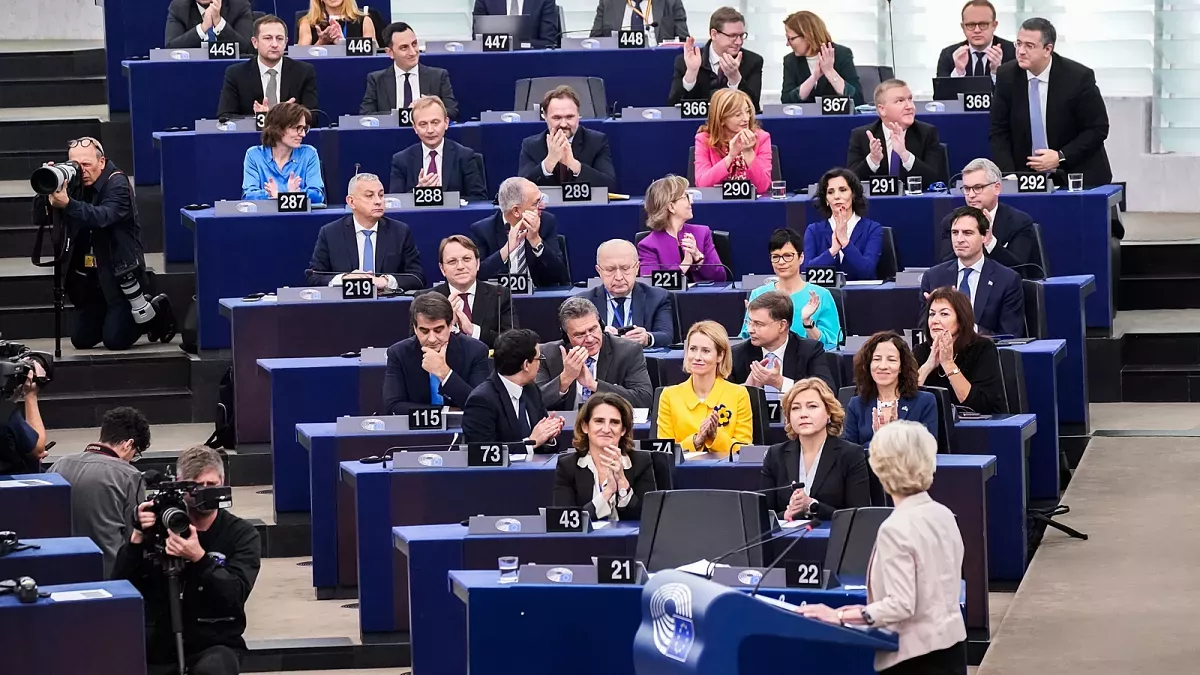
Even more surprising was the fact that during the approval process for the candidates for the positions of European Commission members, none of the nominees were rejected by Members of the European Parliament, even though some were initially considered non-starters. For instance, Hungary's nominee for a second term, Oliver Varhelyi, who had not been particularly discreet about his attitude toward the European Parliament in previous years. And that attitude was not the warmest. MEPs, in turn, threatened to block his reappointment, accusing him of being a pawn of Hungarian Prime Minister Viktor Orbán. However, Varhelyi’s name still appeared in the new list, albeit for a much less prestigious position: he will now be responsible for health and animal welfare, whereas in the previous five years, as Commissioner for Neighborhood and Enlargement, he oversaw a block of foreign policy issues.
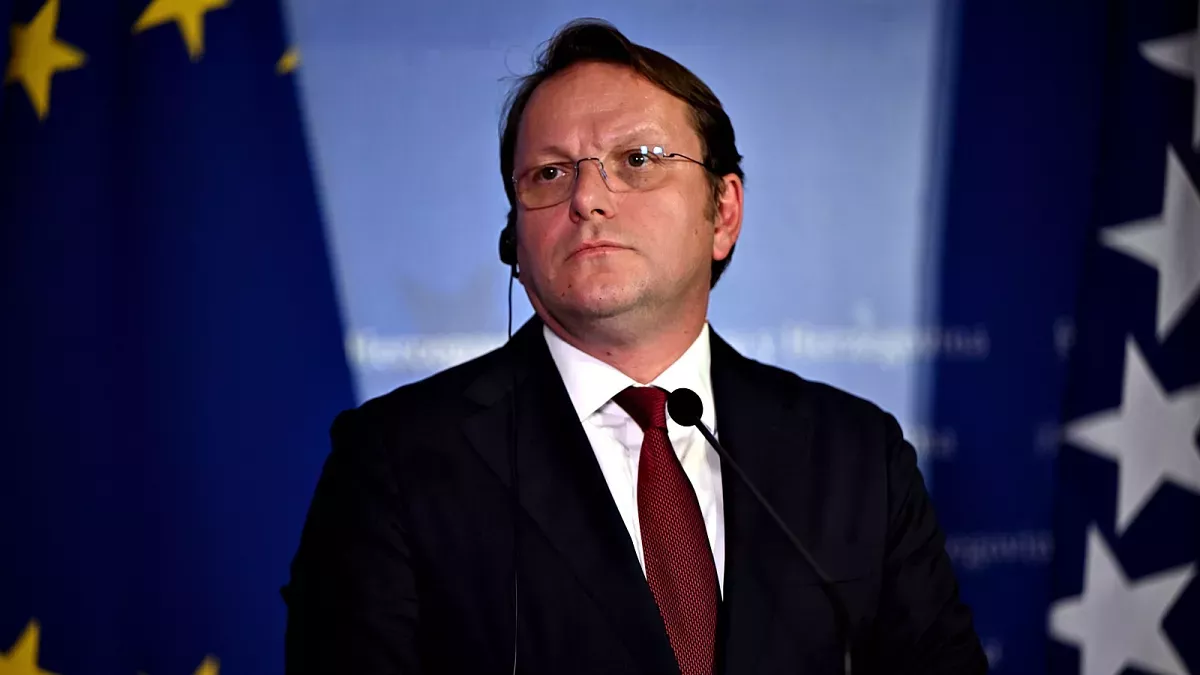
Also approved was Italy's representative, Raffaele Fitto. Although he sparked a true storm of outrage in the European Parliament. The Social Democratic and Green factions initially refused to even discuss his candidacy, accusing the Italian of holding far-right views. Nevertheless, as a result of a web of behind-the-scenes agreements, Fitto became not just an ordinary Commissioner, but one of the six Executive Vice Presidents of the Commission. This means that the Social Democrats and Greens had no counter to the influence of Italy and its Prime Minister, Giorgia Meloni, as well as the prevailing public sentiments in EU countries and the political games being played in Brussels.
Most resonant appointments
We won’t go through all the members of the new European Commission, but we will focus on appointments that stand out as particularly interesting, both in terms of the individuals and the updated structure of the Commission, which suggests some new emphases in its work.
One of the most discussed new European Commissioners is undoubtedly Kaja Kallas, who until recently served as the Prime Minister of Estonia. Now her title is "High Representative of the EU for Foreign Affairs and Security Policy, Vice-President of the European Commission." This is a special position within the Brussels institutions, which was only created in 2009 and uniquely combines membership in both the Commission and the European Council. In other words, the High Representative holds an intergovernmental mandate to speak and act on behalf of the 27 EU member states, while also serving as the deputy head of the supranational executive body—the European Commission.
The choice of Kallas for the head of European diplomacy is notable, as this is the first time an ex-prime minister has been appointed to this role (having left her post as prime minister to move to Brussels). Her three predecessors entered the role of High Representative either from the position of foreign minister of their countries (such as Josep Borrell and Federica Mogherini) or as European Commissioners (like Catherine Ashton).
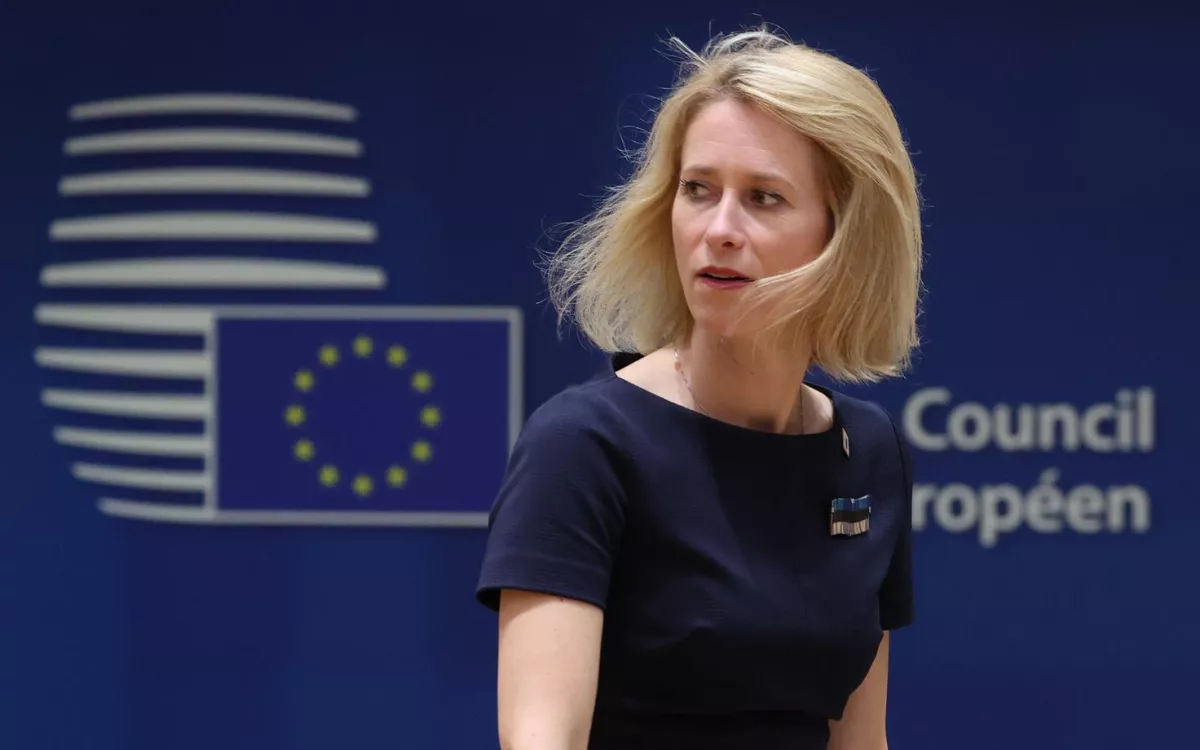
However, the resonance surrounding Kaja Kallas' appointment, of course, stems from other circumstances. She became widely known in recent years for her hardline anti-Russian stance. This was not only reflected in the policies of the Estonian government under her leadership, but also in her often undiplomatic public remarks about Russia. Furthermore, Kallas became the first head of a foreign government to be included by Russia's Ministry of Internal Affairs in a list of individuals wanted on criminal charges. Given all of this, many in the EU and beyond have raised the natural question: how suitable is someone with such a background for the position of High Representative? And what kind of EU diplomacy can we expect if Kallas becomes its face?
However, in behind-the-scenes conversations, some Brussels insiders admit that the news of Kallas' nomination for the post of EU's chief diplomat actually brought a slight sigh of relief. The reason is that earlier this year, there had been expectations that another politician from yet another Baltic country would contend for the role. Compared to him, as one expert put it, "at least you can have a conversation" with the former Estonian prime minister. Whether this turns out to be true will become clear in the near future.
Another significant appointment is that of the European Commissioner for Defence and Space, a position held by former Lithuanian Prime Minister Andrius Kubilius, who has spent recent years as a Member of the European Parliament. This position is new to the Commission's nomenclature, and there has been much discussion surrounding it. Defence-related matters have traditionally been highly sensitive within the European Union. It is no coincidence that the ongoing, seven-decade-long attempts to create some form of a defence union within the EU have consistently encountered insurmountable obstacles. Most EU member states refuse to pursue serious European integration in this area. Some fear that such integration could negatively impact NATO and the US defence umbrella in Europe, which forms the foundation of their security. Others simply do not trust other EU countries and are unwilling to tie defence matters to agreements with them.
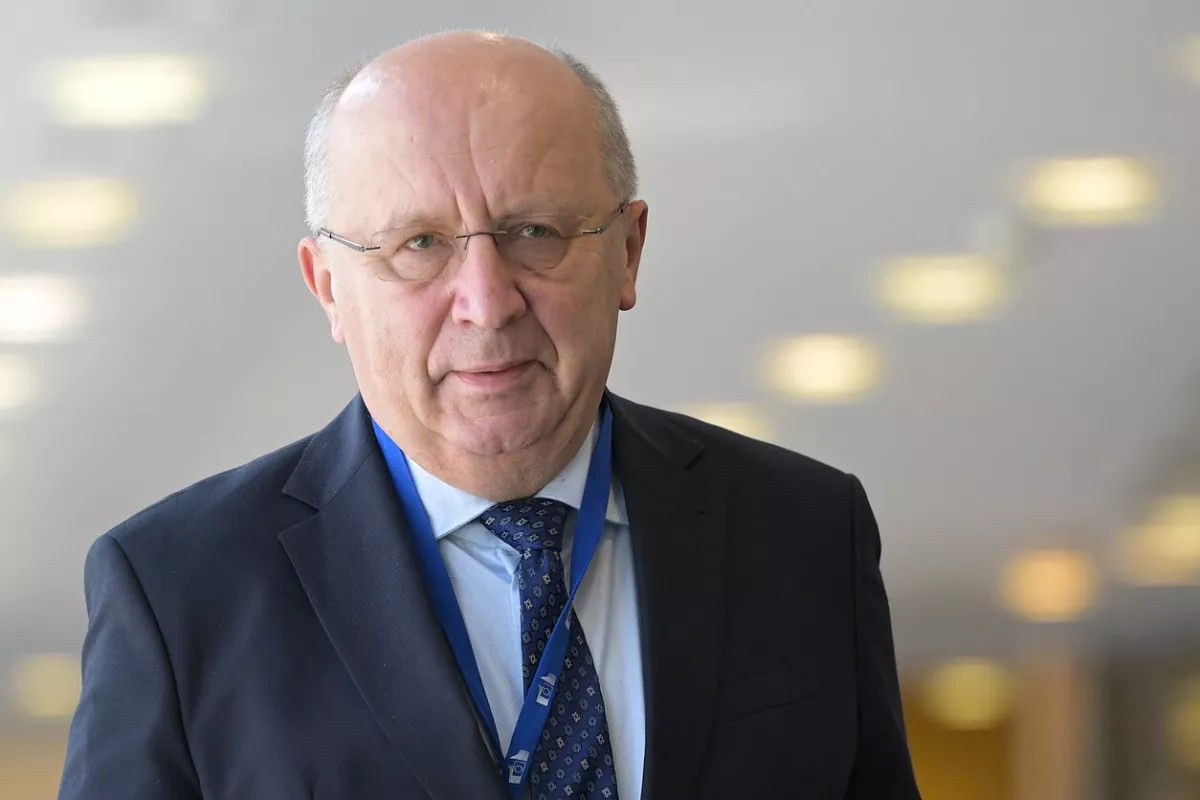
Therefore, when discussions about the new European Commissioner for Defense began last year, it was clear that the person filling this role would not be a political heavyweight influencing the defence policies of member states. And that’s exactly what happened: the mandate of the Commissioner for Defense and Space is limited to issues of military-industrial cooperation under the slogan "Europe must invest more, invest better, invest in Europe."
However, on paper, Kubilius' mandate still appears extraordinarily ambitious, given the objective limitations for developing defence cooperation within the EU. It’s hard to imagine that the tasks set for him by Ursula von der Leyen will be fully achieved, but in any case, his name will be constantly in the spotlight. Within the first hundred days of his tenure, he is expected to work with Kallas to develop a strategic document on the future of European defence.
Also worth noting are two reappointments to the new European Commission. These are not just individuals staying on from the previous term, but long-standing members of the body. The record holder here is Slovakia's Maroš Šefčovič. He has already been a European Commissioner for 15 years and during this time has held various thematic portfolios. In the previous version of von der Leyen's team, he was one of the key Executive Vice Presidents. In the new Commission, he will continue to oversee critical areas—trade and economic security, as well as interinstitutional relations and transparency—but without the status of a deputy head of the Commission.
The same goes for Valdis Dombrovskis, another Brussels veteran. The former Prime Minister of Latvia has represented his country in the EU's executive body continuously since 2014. He is also no longer an Executive Vice President of von der Leyen, but will continue to oversee the key economic portfolio.
European political backstage
The newly-formed European Commission is just one element of the latest institutional cycle within the EU and a slightly altered Brussels political landscape. Following the European Parliament elections this past summer, there was a renewal of the EU’s leadership spectrum. For instance, amid the attention surrounding the new European Commission, an important personnel change in the position of President of the European Council went relatively unnoticed. While the head of the Commission leads the supranational segment of the EU, the President of the Council is responsible for coordinating intergovernmental cooperation among member states and also represents the EU at the international level on behalf of the 27 countries.
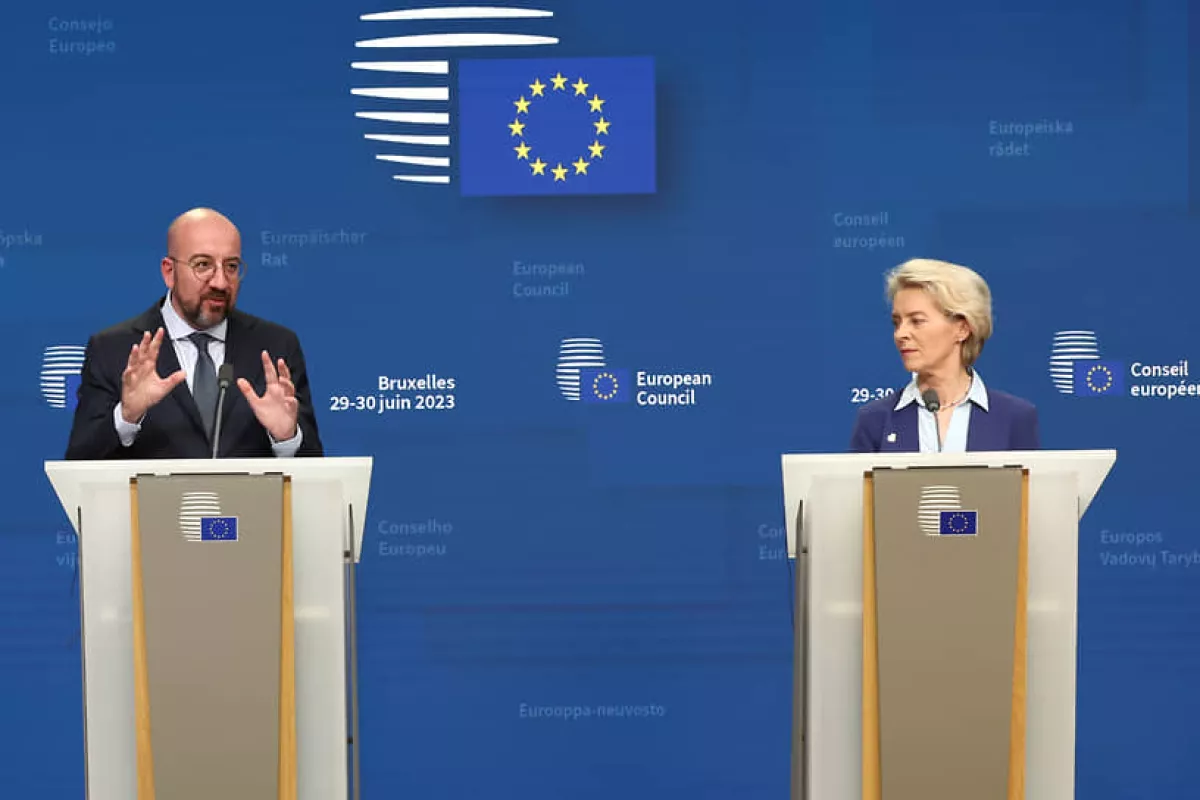
In many ways, this is the most significant position in the political-bureaucratic hierarchy of the EU. And on December 1, it was assumed by former Portuguese Prime Minister António Costa. The political climate in Brussels will largely depend on the relationship that Costa develops with the head of the European Commission. As is well known, working with the former President of the European Council, Belgian Charles Michel, was a complete failure for Ursula von der Leyen. Their constant conflicts, especially behind the scenes, had long become the stuff of legend in the media and the Brussels political circle. At times, their irreconcilable mutual dislike even spilt over into vivid memes and diplomatic scandals.
If we look beyond the central EU institutions and peek into the European political backstage, another key player in the new Brussels cycle is the head of the European People's Party (EPP), Manfred Weber. The Politico publication even called him the new “king” of the European Parliament. Inter-factional parliamentary negotiations during the process of agreeing on Commission members showed why this unofficial title from journalists might indeed reflect the power of the EPP and its leader. The negotiations ultimately turned into a political "mash," where many initial agreements and ideological positions became blurred. Only the EPP, under Weber's leadership, had the strength to stir and influence this political "mash" to its advantage.
It is also impossible to overlook how the European People's Party (EPP) itself is changing. As the crisis of centrist parties in Europe deepens, the entire political spectrum of the EU is gradually shifting to the right, including the EPP and the conservative forces within it in EU member states. Traditionally, the EPP, along with the Social Democrats, was the central pillar of the European political structure, and the mainstream in both the European Parliament and beyond relied on their cooperation and mutual understanding. However, changes are now taking place (and will intensify) to such an extent that it is becoming difficult to define what exactly represents the political mainstream in the EU.
What is clear, however, is that it is actively shifting to the right. Under the slogan of "preventing far-right populists from coming to power," the EPP is being forced to adopt many of their slogans and programmatic positions. In this new five-year political cycle, this rightward shift will undoubtedly be a major factor in the work of the Commission and in the life of Brussels' political backstage.








